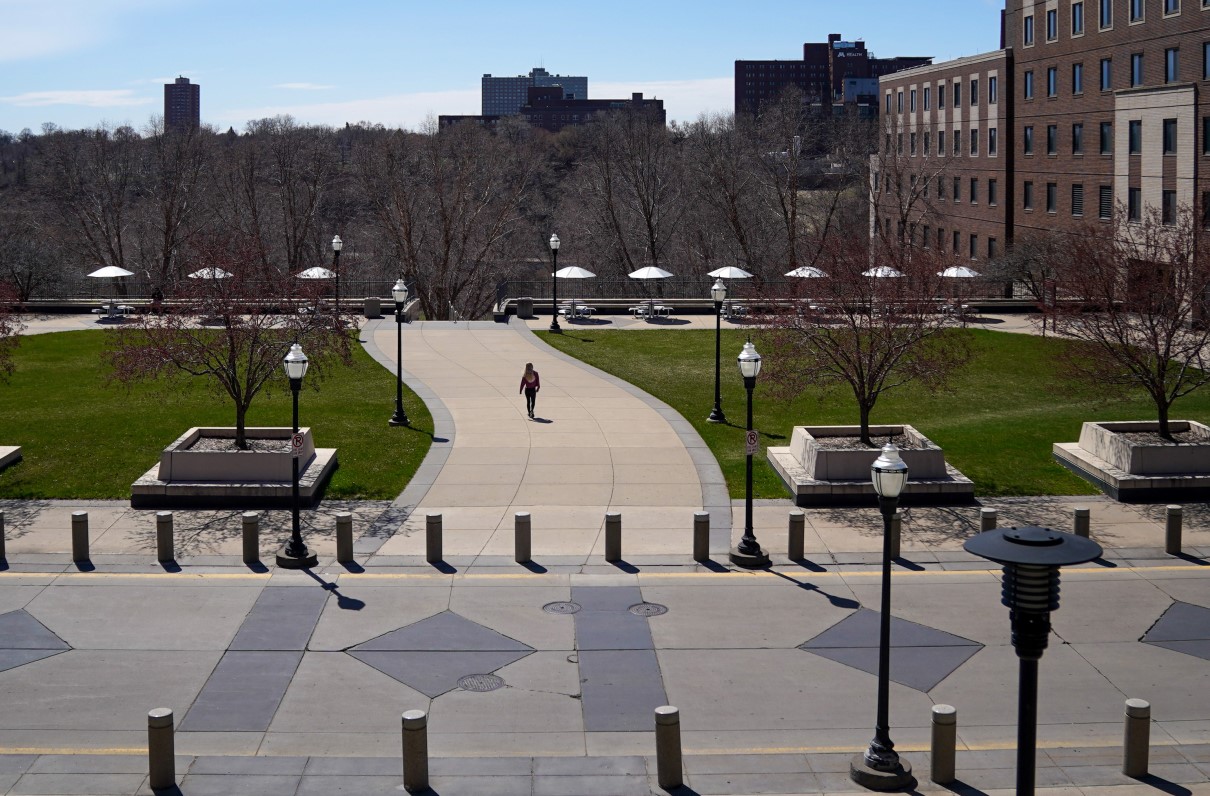This article by Leo Shane III originally appeared on Military Times, the nation's largest independent newsroom dedicated to covering the military and veteran community.
As student veterans wrap up their coronavirus-shortened spring semesters this month, many are worried about what is going to happen with their classes and education benefits when they return to school next fall.
The head of the Veterans Benefits Administration admits he’s not completely sure, either.
“We’ll have more questions in September, what happens when schools reopen or don’t,” said VA Under Secretary for Benefits Paul Lawrence in an interview with Military Times. “But I think there is tremendous flexibility for the students. We’ve been pretty agile through this, so I’m confident in our ability to respond. We’re watching states reopen, so I feel confident about that. But we know some places will linger.”
[RELATED: More Transition and Career News From MOAA]
About 950,000 individuals received some type of veterans education benefits last year. Tens of thousands of students’ lives were thrown into disarray earlier this year as colleges closed their campuses and shifted to online learning.
In response, Congress scrambled to pass a series of legislative fixes to ensure that GI Bill tuition payments and housing stipends would continue uninterrupted as the education model shifted to cyberspace.
Lawrence said those authorities will remain in place until January 2021, giving students and administrators assurances that the veterans benefits won’t suddenly be shut off.
[LATEST NEWS AND GUIDANCE: MOAA.org/Coronavirus]
“We’re trying hard to get the word out that we will take a pro veteran interpretation of things we can,” he said. “If you sign up the wrong way, you call up and say you made a mistake, we’ll find a way to fix that right away."
Advocates for student veterans say so far they’ve seen plenty of anxiety but only a few issues with those education benefits in recent weeks.
Lauren Augustine, vice president of government affairs for Student Veterans of America, said the main obstacle she sees for student veterans this fall involve decisions to come from individual colleges and universities: how they’ll classify courses, how they’ll communicate that to students and VA, and when those choices will be finalized.
[RELATED: New Law Protects Student Veterans During COVID-19 Crisis]
Under current rules, student veterans’ monthly payouts can fluctuate wildly depending on if they are classified as online-only students or in-person, in-state residents. How those distinctions are made will depend on how schools respond to the coronavirus-forced changes.
Lawrence acknowledged the potential for a chaotic start to the fall semester for many families.
“It’s an uncomfortable situation for student veterans, but it seems as though everyone understands it and appreciates it, and legislation is flowing pretty quickly,” he said. “We’re working pretty closely with everyone.”
Along with conversations with college officials about looming pitfalls, Lawrence said VA leaders are regularly speaking with lawmakers on Capitol Hill about the potential for additional legislation to adjust how the education benefits are awarded.
“I’m not able to predict the future, but the speed by which (earlier legislation) happened leads me to believe our student veterans will not be left suffering,” he said.
Other articles by Military Times:
PACAF’s next commander will be one of the Air Force’s most experienced fighter pilots
This submarine just wrapped up a 30-month deployment
From black and white to fashion statements, military exchanges helping keep your face covered
Support The MOAA Foundation
Donate to help address emerging needs among currently serving and former uniformed servicemembers, retirees, and their families.


